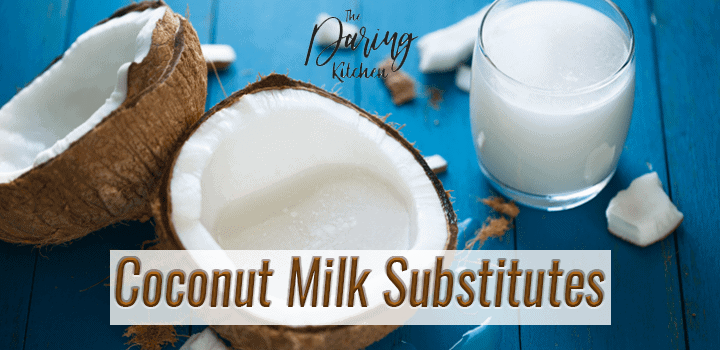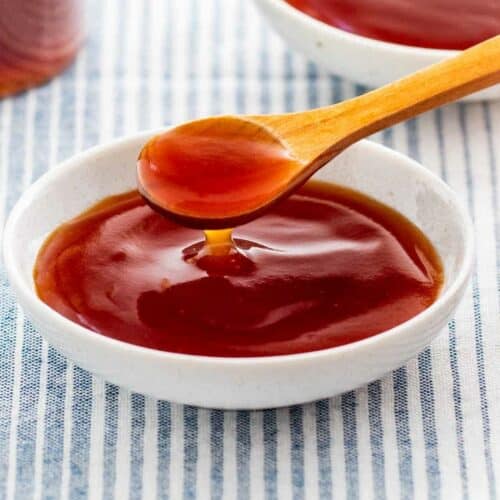It all starts with a can of coconut milk. This unsung hero lends creaminess and flavor to a variety of recipes from curries and soups to poultry marinades, stews, and even smoothies and baked goods. No doubt we have a super versatile ingredient here, plus it’s nutritional and suitable for a vegan-based or lactose-free diet, which all adds up to its increasing popularity.
If you’re out of coconut milk or, for any reason, you avoid it, you can count on a coconut milk substitute. There are many dairy and non-dairy alternatives but keep in mind that they won’t duplicate the taste of coconut as successfully - if that’s what you want - unless you go for a coconut-based substitution or you make some adjustments to your recipe.
On the other hand, using a substitute to achieve a thick consistency similar to the one that coconut milk gives to your food is an easier task. Without further ado, here are the best coconut milk substitutes.
Table of Contents
Coconut Cream
For added creaminess without any change in flavor, why not trust another member of the coconut family? Coconut cream, for example. Sometimes, it can be confusing to distinguish between coconut milk and coconut cream, but their main difference lies in their consistency and concentration.
Coconut cream is the fattier coconut milk version. It has a thicker consistency and a higher content in saturated fat. To replace coconut milk with coconut cream, add ¾ cups water to 2 tablespoons of coconut cream. For a lighter texture, feel free to add a little more water to the cream.
Note: Coconut cream shouldn’t be confused with cream of coconut, which is a heavily sweetened variation of coconut milk –similar to condensed milk. Cream of coconut is mainly used in piña coladas and other cocktails or desserts.
Other coconut-based milk alternatives include:
- Coconut water: A clear fluid with a light flavor and low-calorie content. It has excellent hydrating properties and can be enjoyed as a nutritional natural drink. Plus, it is great for dieters. Mixing it with heavy cream will give you a good coconut milk substitution.
- Coconut flakes: Flaked coconut is larger than desiccated or shredded coconut. It can be used in sweet baked goods and gives texture to savory recipes such as Thai curry. You can also create coconut milk from the flakes. Just boil ¾ cup water, then add ¼ cup unsweetened coconut flakes. Boil for 5 minutes and transfer the mixture into a blender. Blend and strain if needed.
- Coconut milk powder: Powdered coconut milk makes an affordable substitute for canned coconut milk with all the flavor of the latter. It has a long shelf life and is super easy to make. You can mix it with water to turn it into milk, or sprinkle the powder itself into smoothies and use it in a glaze for cake and doughnut.
Almond Milk
If you are not a fan of the coconut taste, you can replace coconut milk with almond milk (just make sure to use the unsweetened version.) Both almond milk and coconut milk are vegan and lactose-free alternatives to cow’s milk and they can be both consumed raw or used in cooking and baking recipes with success.
Almond milk is a lot lower in fat and calories, and higher in calcium and potassium. Besides, it contains more sodium and less protein. The sweet nutty flavor of almond makes it a good substitution when it comes to desserts, smoothies, and cereals.
However, its thinner consistency may not be the best alternative in thick curry sauces. This may not matter too much if your curry sauce is meant to be thin anyway, but if you want to thicken it, you can mix 1 teaspoon of cornstarch into the milk and then add it to your curry.
Soy Milk
Soy milk is one of the best dairy-free alternatives to coconut milk. It’s most comparable to cow milk due to its high nutritional value. It has more protein than other plant milks and is a good source of fiber and good fats.
If you are following a vegan diet, make sure you get soy milk that is fortified with calcium and is preferably unsweetened.
You can replace coconut milk with soy milk at a 1:1 ratio. As it’s thinner than coconut milk, you may need to add some cornflour to thicken it. For a coconut-like taste, you can add coconut essence to soy milk.
Other plant-based alternatives include:
- Oat milk: Great substitute in coffee, lattés, and high-heat recipes.
- Cashew milk: Works well in soups, sauces, salad dressings, mashed potatoes.
- Rice milk: It’s thinner than coconut milk and can be used in smoothies, oatmeal, puddings.
- Hemp milk: It’s low in calories and a good source of protein. Its texture is similar to cow milk’s making it ideal for latte art and baking recipes.
- Macadamia milk: This versatile nut milk is tasty and creamy enough to use in desserts, savory dishes as well as hot and cold beverages.
Heavy Cream
Moving on from non-dairy to dairy-based alternatives, heavy cream comes first in our list. It is fattier than coconut milk and can replace it in equal quantities.
Due to its thick creamy texture, heavy cream is perfect for high-fat recipes like thick soups,sauces, curries, rich desserts, and ice cream.
Evaporated Milk
Also known as unsweetened condensed milk, evaporated milk is canned cow’s milk with 60% less water content than fresh milk. This makes it more creamy than regular fresh milk. Its viscosity is similar to that of half-and-half and its flavor is slightly sweet.
You can use it instead of coconut milk in various creamy dishes, soups, baking recipes, or dessert toppings. Pour it over cereal or into beverages. The only drawback is that it doesn’t taste like coconut, but this can be easily fixed by adding a bit of coconut essence or coconut oil to it.
Greek Yogurt
If you are looking for a healthy replacement for coconut milk, Greek yogurt is a great choice. It has high nutritional value and contains less saturated fat than coconut milk.
Due to its similar thick consistency, it can be used in the place of coconut milk adding creaminess to sauces, soups, and other dishes. It can also be diluted with a little water before using it in cooking or baking.
Sour Cream
Another tangy dairy product with a distinctive flavor, sour cream can be used to thicken sauces, Indian curries, and soups. Use in moderation. If there are other acidic ingredients in your recipe, you may need to use less of those or make some other adjustments.
Sour cream is ideal for cake frosting and baking recipes. Combining sour cream with thawed coconut will produce the most moist, most yummy coconut sour cream cake of all!
Silken Tofu
Silken tofu is made from soy milk. It has less fat and calories than coconut milk and can take its place (at a 1:1 ratio) if you mix it with the same quantity of soy milk and blend it into a creamy liquid.
Tofu is a good source of protein, calcium, and iron and that’s why it appeals greatly to vegan dieters and those who avoid dairy for any reason.
Half-And-Half
Half-and-half is half whole milk and half heavy cream. It’s super versatile and adds richness to various recipes. It’s also super easy to prepare at home by mixing equal parts of regular milk and cream.
Use 1 cup half-and-half to substitute 1 cup of coconut milk.
Regular Milk
If you are running out of alternative options, how about using some regular milk? Full fat milk mimics the thickness of coconut milk better but even 2% fat will do. Coconut milk has a thicker consistency, so use less quantity of regular milk to replace coconut.
Cashew Cream
Cashew cream is a rich creamy dip with a consistency that is similar to yogurt. It is super versatile and, like coconut milk, it adds creaminess to vegetable-based sauces and soups. It can also be used as a dressing for grain bowls or roasted vegetables.
Besides, it is super easy to make at home. Simply soak a cup of raw cashews for an hour or, even better, overnight and then put them in a blender with a little plant-based milk or water. For a sweetened version, you can add a date to the soak.
Other Substitutes
- Buttermilk
- Low fat cream cheese
- Almond paste










Leave a Reply